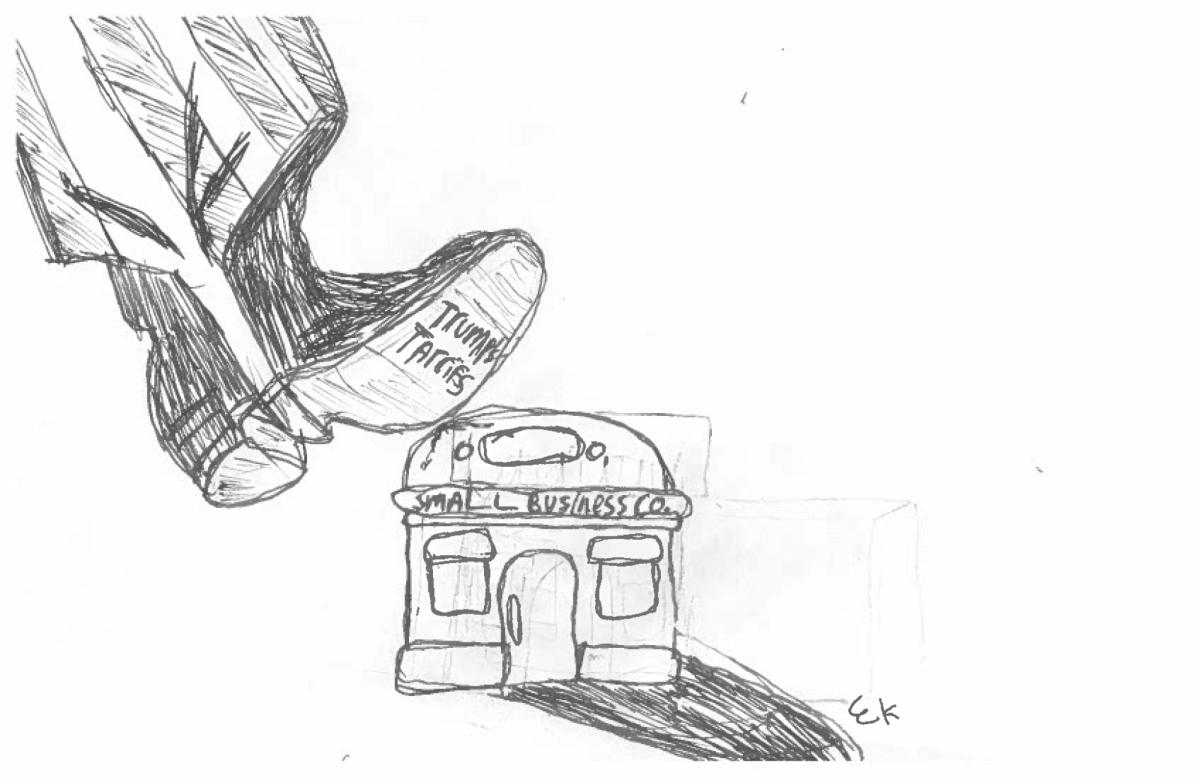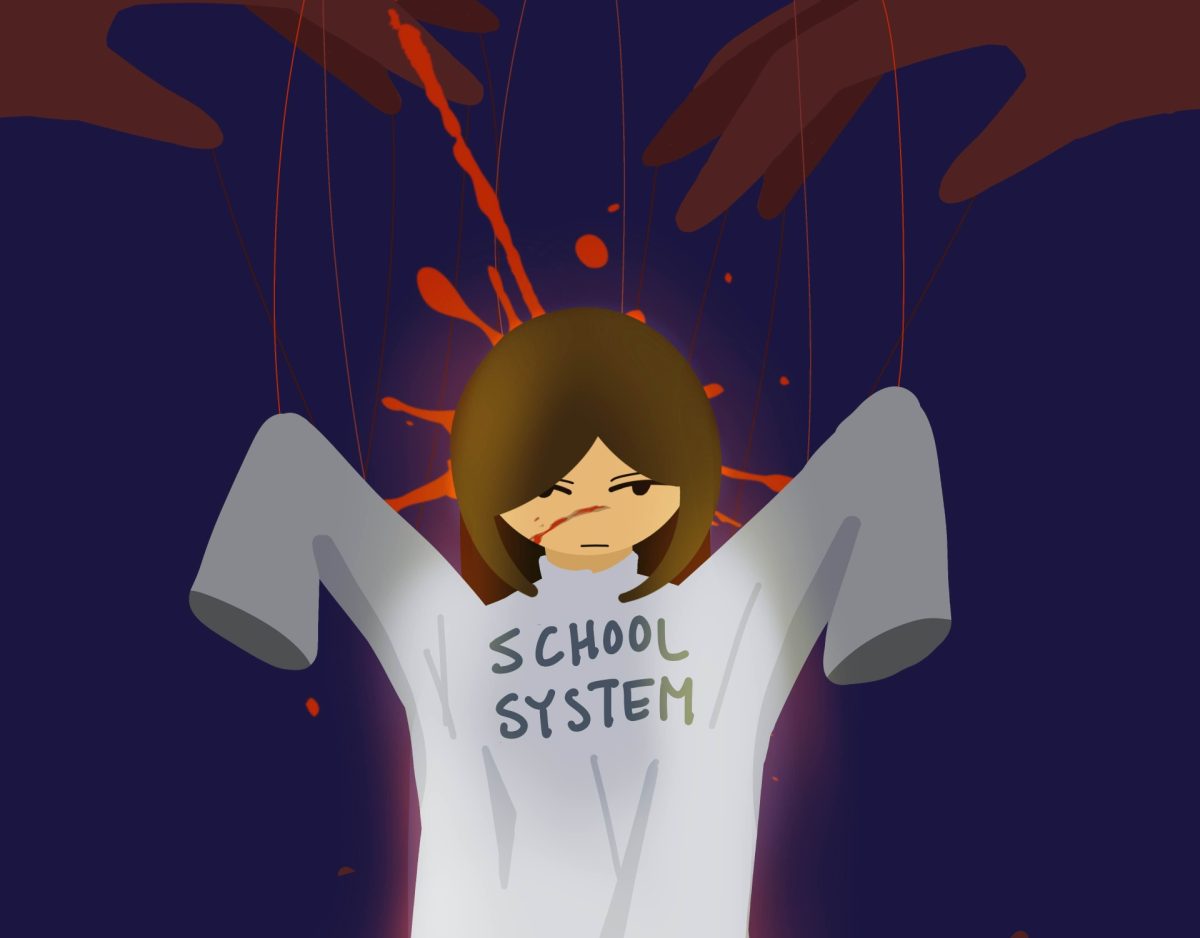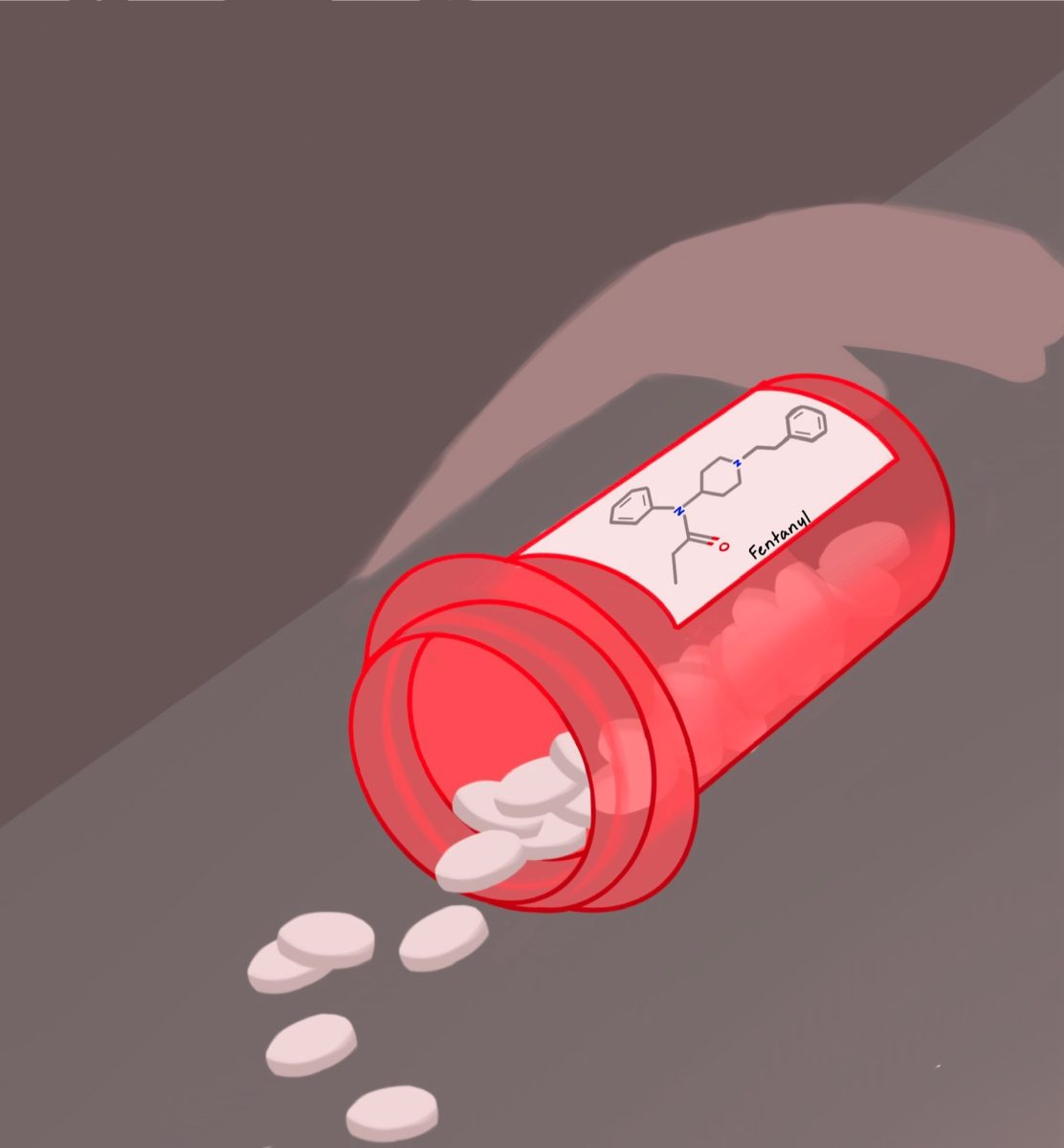Amid the bustling streets of Tel Aviv this July, I found myself swept up in a sea of white and blue Israeli flags. In the heart of this vibrant city where history and modernity collide, I witnessed a movement that seeks to preserve the nation’s justice system.
The echoing chants, colorful banners and noticeable sense of desperation in the air painted a vivid scene in my journey through one of many historic protests, where voices rise together, demanding justice and, most importantly, accountability.
For 35 consecutive weeks, Israelis have marched, waving flags in the Saturday night sky, their chants and drum beats echoing against the limestone bricks of the Old City of Jerusalem, fighting against Prime Minister Benjamin Netanyahu’s radical judicial reform.
The scene was nothing short of inspiring. The very streets I had walked earlier that Saturday had transformed from shopping centers full of street vendors to stages for political activism.
Stages were built, screens and projectors were erected, and people–some even younger than me–were handed megaphones and a podium, to speak in front of a crowd of hundreds of thousands.
What struck me the most was the feeling of hope resonating from each person’s shouts and pleas. After 30 consecutive weeks of protest, with seemingly little effect on the current Israeli government, I was genuinely surprised to see so many people coming out.
Almost 380,000 people of different ages, nationalities, religions and social classes came together to stand against injustice and tyranny. It was inspiring to me to see Israelis coming together, especially since, while growing up with two Israeli parents, I have always heard how divided the country often is.
While the flame of hope I saw shining at the protests resonated with me for weeks, I couldn’t help but ask myself if anything would even change.
First part of the plan passed
Despite the pressure from hundreds of thousands of hopeful constituents, Israel’s current parliament, The Knesset, has passed the first major part of their plan to overhaul Israel’s judicial branch: To remove one of the Israeli Supreme Court’s most significant powers: the reasonableness doctrine.
To understand the impact of this change, it’s vital to note the demographics of people making up the current government, and why exactly they have caused the implosion of the country.
On Dec. 2022, Benjamin Netanyahu’s far-right party, Likud, received roughly 24% of the votes in the election. This gave them 32 out of 120 seats in the Knesset.
Then, Netanyahu quickly formed a large coalition with other religious, far-right, and extremist parties, gaining 64 total seats. He thus managed to gain a majority in parliament, and has since posed a major threat to Israel’s democracy.
His extremist coalition got to work on their vision for the country right away, and announced their plan to essentially decimate the powerful Israeli Supreme Court and give the power to the Knesset.
In July 2023, the coalition voted to eliminate the Reasonableness Doctrine. This principle has been used by the Israeli Supreme Court to interpret and judge government policies. The doctrine works exactly how it sounds: The court is able to examine any law proposed by the Knesset and evaluate its sensibility and justness.
For example, when Prime Minister Benjamin Netanyahu tried to appoint Arieh Deri as minister of finance, the Supreme Court determined that the appointment was unjust due to Deri’s previous convictions of bribery, treason, money laundering and tax fraud, on the basis that it didn’t make sense to appoint this criminal to minister of finance.
However, a trend in recent years has been to repeatedly shoot down much of the legislation proposed by the right-wing, which is why the Court has entered the crosshairs of Netanyahu’s coalition.
What could this mean for life in Israel?
The judicial branch is not the only thing in between the coalition’s crosshairs, though. LGBTQ rights, women’s rights, freedom of the press, freedom of religion and Palestinian sovereignty in the West Bank are all being threatened.
Israel’s claim of being the only democracy in the Middle East is losing its validity. With all the corruption that is slowly seeping into the Israeli government, can Israel really hold itself at a higher standard compared to the countries surrounding it? Or will it fall victim to the same problems as the failed democracies of Hungary and theocracies such as Iran?
These questions cause tremendous anxiety for me as I think about my future. What does it mean for me to be Israeli? Should I still love my home country, even if I disagree with the government? Should I serve in the army and risk my life to protect ideals I don’t believe in?
People living in Israel should also be questioning the morality of their government officials.
How can they trust a prime minister currently undergoing three separate trials for corruption?
How can they feel safe, when the director of security, Itamar Ben-Gvir, is a far-right extremist convicted of supporting a terrorist group and inciting racism? How can a man like that be head of the police?
When the social contract is broken, and the people no longer trust the government, democracy fails, and the ideals upon which the country was built begin to crack.
Daily life in Israel is changing, and the chances of it changing back are shrinking every day. I hear my friends talk about their summer trips to Israel, and I can’t help but wonder if they think about the crisis like I do.
Are they aware of the corruption rotting the government from the inside?
Netanyahu made several compromises and concessions to far-right religious officials in the Knesset in order to form the coalition.
As part of that agreement, ultra-Orthodox groups proposed to segregate by sex in public places such as buses, trains, concerts and meetings. They also proposed expanding legally-enforced segregation for communities by level of religious observance.
Don’t they worry that they might not be able to sit next to their mother on the bus next time they visit?
Do they even care? Or are the protestors and I alone in our fight?
Even with all these questions and uncertainties whirling around my head, I can’t forget how I felt walking through the streets during the protests.
“Democracy! Democracy! We will defend our country from you!” we chanted.
I can’t forget the hope we had as we chanted. The hope that the people really can make a difference. The hope that people in power can eventually do the right thing. I hope that I’ll have a place to show my children one day, no matter their religion, their gender, or their sexual preference and still be able to tell them that Israel is their home.















Rabbi Robert Nosanchuk • Oct 8, 2023 at 5:24 PM
Ori, I am proud of you and I know the same is true for all of us at Fairmount Temple, for your excellent writing and for the compelling ideas you chose to share in this message. We need to learn and grow in relationship to Israel and not be afraid to speak our minds. Thank you!
Anat • Oct 5, 2023 at 3:49 AM
Ori, This is impecably written, and you have struck all the crucial points. I read with great interest! Especially liked the sentence: “When the social contract is broken, and the people no longer trust the government, democracy fails, and the ideals upon which the country was built begin to crack” – you nailed it in this sentence!